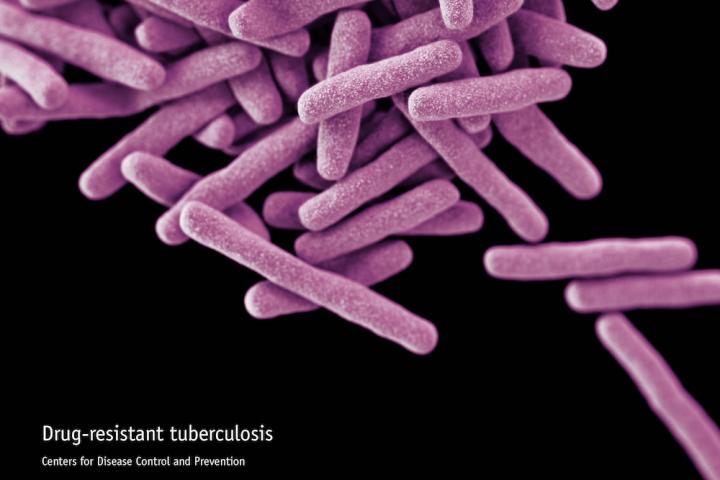
Credit: Centers for Disease Control and Prevention
Susan Dorman, M.D., an infectious disease physician at the Medical University of South Carolina (MUSC), was recently awarded a 10-year, $9.9 million contract by the Centers for Disease Control and Prevention to run trials for the Tuberculosis Trials Consortium (TBTC). The TBTC is a collaboration of researchers whose goal is to improve the diagnosis, management and prevention of tuberculosis (TB) around the world. Dorman, who has dedicated her career to studying the disease, serves as a TB medical consultant for the South Carolina Department of Health and Environmental Control and leads research efforts to improve TB treatment and prevention.
“In the U.S., we think of TB as a disease of the past, and we do have good TB control in this country,” Dorman explained. “However, in many other parts of the world, it is still a contemporary health problem that impacts people’s lives in terms of morbidity and mortality.”
According to the World Health Organization, TB is one of the top 10 leading causes of death in low-income countries. That’s why Dorman has a long-term collaboration with a research team at the University of Cape Town Lung Institute in South Africa, where TB is very common. For one of the TBTC projects, she will partner with the Cape Town team to test TB treatment interventions in an area where people are severely affected by the disease.
The leaders of the TBTC will set the research agenda for funded investigators and ensure it is relevant both globally and in the U.S. In this country, social disparities in health care are contributing factors to TB infection and transmission. People living in poverty and crowded living environments are at a higher risk for TB transmission. Lack of access to proper nutrition can increase disease susceptibility, and health care costs can negatively affect treatment outcomes. Future work from the TBTC will attempt to address strategies for better managing TB and latent TB in underserved populations in the U.S.
Although TB is curable, Dorman said, it is a challenging course of treatment that can involve six months of antibiotics, with more than one antibiotic often being taken at the same time. The treatment can be difficult for patients to complete and can lead to side effects. One component of this funded work would be to shorten the treatment duration to improve the likelihood of patients completing it.
Another hurdle to effective management of the disease is latent TB infection. The bacterium that causes TB can live inside people for years without causing any signs or symptoms. Later in life, they can ‘wake up’ and cause sickness, and so it is important that we have effective tools for preventing TB. The treatment for latent TB, much like that for active disease, involves an intense course of antibiotics that doesn’t foster patient adherence, especially in people who feel healthy.
The consortium will focus on improving the prevention of TB infection in individuals with latent TB. Ultimately, the efforts of Dorman and her team could vastly improve TB treatment and prevention and alter clinical guidelines for treating TB.
Dorman is driven by her passion to prevent and treat TB.
“I really am motivated to try to help to do a better job of preventing people from getting TB, and, if they do get it, doing a better job at treating them so they survive it.”
###
About MUSC
Founded in 1824 in Charleston, MUSC is the oldest medical school in the South as well as the state’s only integrated academic health sciences center with a unique charge to serve the state through education, research and patient care. Each year, MUSC educates and trains more than 3,000 students and nearly 800 residents in six colleges: Dental Medicine, Graduate Studies, Health Professions, Medicine, Nursing and Pharmacy. The state’s leader in obtaining biomedical research funds, in fiscal year 2019, MUSC set a new high, bringing in more than $284 million. For information on academic programs, visit musc.edu.
As the clinical health system of the Medical University of South Carolina, MUSC Health is dedicated to delivering the highest quality patient care available while training generations of competent, compassionate health care providers to serve the people of South Carolina and beyond. Comprising some 1,600 beds, more than 100 outreach sites, the MUSC College of Medicine, the physicians’ practice plan and nearly 325 telehealth locations, MUSC Health owns and operates eight hospitals situated in Charleston, Chester, Florence, Lancaster and Marion counties. In 2020, for the sixth consecutive year, U.S. News & World Report named MUSC Health the No. 1 hospital in South Carolina. To learn more about clinical patient services, visit muschealth.org.
MUSC and its affiliates have collective annual budgets of $3.2 billion. The more than 17,000 MUSC team members include world-class faculty, physicians, specialty providers and scientists who deliver groundbreaking education, research, technology and patient care.
Media Contact
Heather Woolwine
[email protected]
Original Source
https:/



